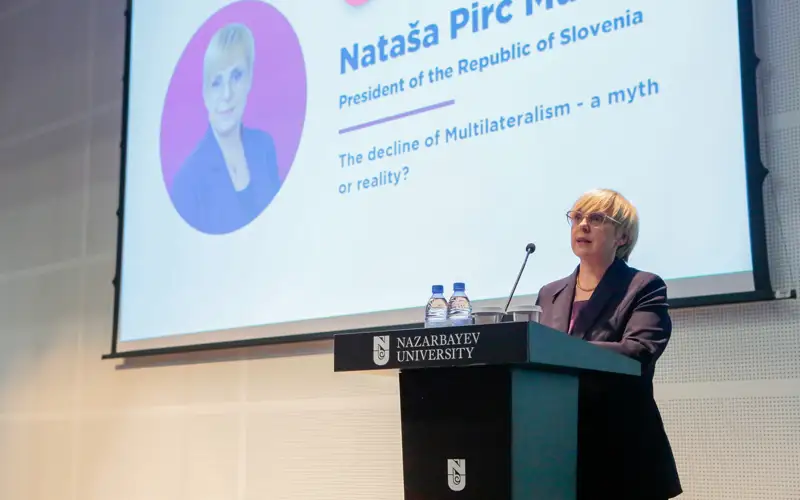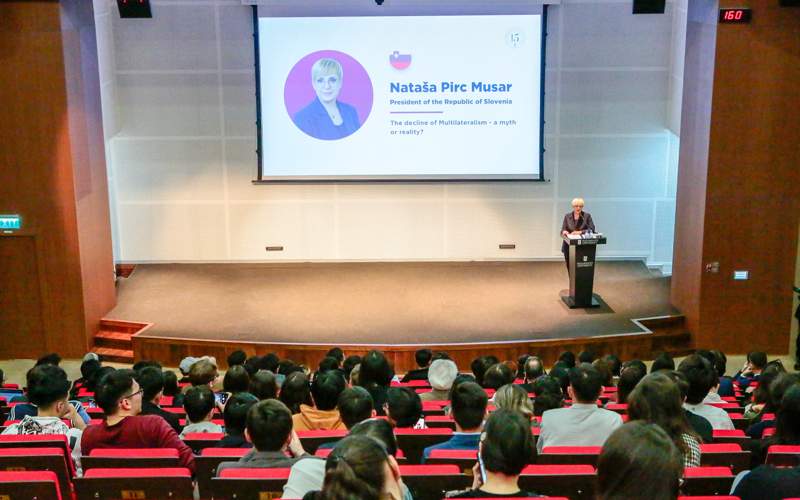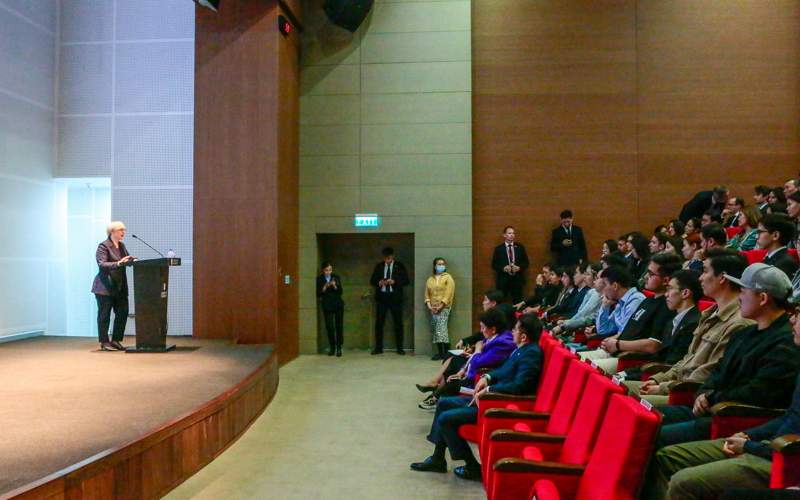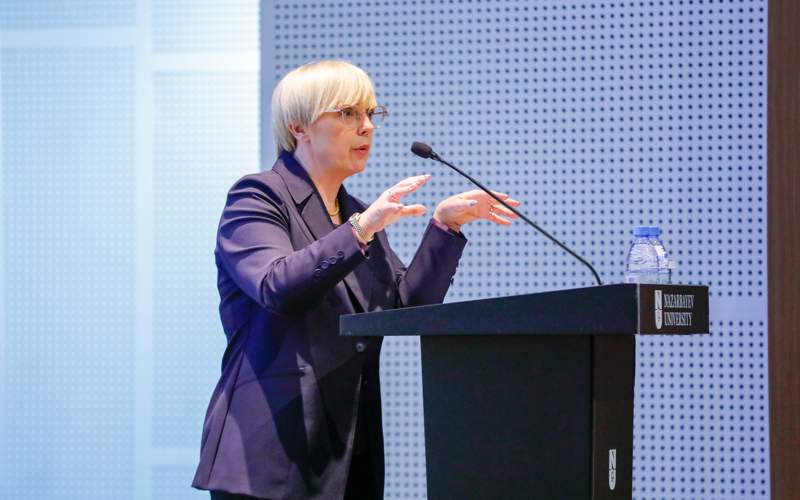Slovenian President Nataša Pirc Musar gives a lecture at Nazarbayev University
During her official visit to Kazakhstan, the President of Slovenia, Nataša Pirc Musar, delivered a lecture titled “The Decline of Multilateralism – A Myth or Reality?” at Nazarbayev University in Astana, reports a Kazinform News Agency correspondent.

Speaking to students and faculty, she reflected on international cooperation, Slovenia’s diplomatic journey, and the relevance of these themes to countries like Kazakhstan.
President Pirc Musar began by challenging traditional perceptions of what constitutes a “small” or “large” country. Despite Slovenia’s modest population of 2 million, she emphasized that true influence in international affairs is not solely measured by size or GDP.

“Kazakhstan ranks as the ninth largest country in the world, sharing borders with global giants China and Russia. And yet, I believe no country, including Kazakhstan, sees itself as ‘small,’” the president noted.
She pointed out that Kazakhstan, like Slovenia, has the opportunity to punch above its weight in global diplomacy—through confidence, vision, and strategic partnerships.
“Diplomatic skills and self-confidence matter more than territory,” she said, highlighting Slovenia’s own path from a former Yugoslav republic to a respected member of the European Union, NATO, and the UN Security Council.
Addressing pressing global issues, President Pirc Musar emphasized the necessity of multilateral cooperation—something particularly relevant to Kazakhstan given its geographical and geopolitical position. Topics ranged from climate change and water security to gender equity and artificial intelligence. Each issue, she stressed, requires international solutions.

She cited water diplomacy as a key area of cooperation, referencing Slovenia’s experience with transboundary water management. Kazakhstan, which shares crucial water resources with neighboring states, faces similar challenges.
“Two-thirds of countries on this planet share water reserves. Cooperation is not optional—it’s a necessity,” she said.
The President also raised the alarm about the global climate crisis, saying, “We no longer speak of climate change—it’s a crisis now.” She shared Slovenia’s green initiatives, including student-led proposals like the “21 Degrees for the 21st Century” campaign, and encouraged Kazakhstan to be part of a united global front.
“It’s not enough if only Slovenia or Kazakhstan makes changes—the whole world must act.”

Turning to gender equity, she noted that Kazakhstan currently has just three women ministers—a number she urged to increase. As Slovenia’s first female president, she underscored the importance of equal representation and the economic benefits of diverse leadership, calling on both men and women to advocate for equity.
“Nothing will change without men supporting women’s inclusion,” she said.
In closing, President Pirc Musar reiterated that both Kazakhstan and Slovenia, regardless of their size, have unique and powerful roles to play in the international system.
“Multilateralism is not perfect,” she acknowledged, “but it gives countries like ours the space to innovate and lead.”
Earlier, it was reported that the President of Slovenia arrived in Kazakhstan for an official visit.

